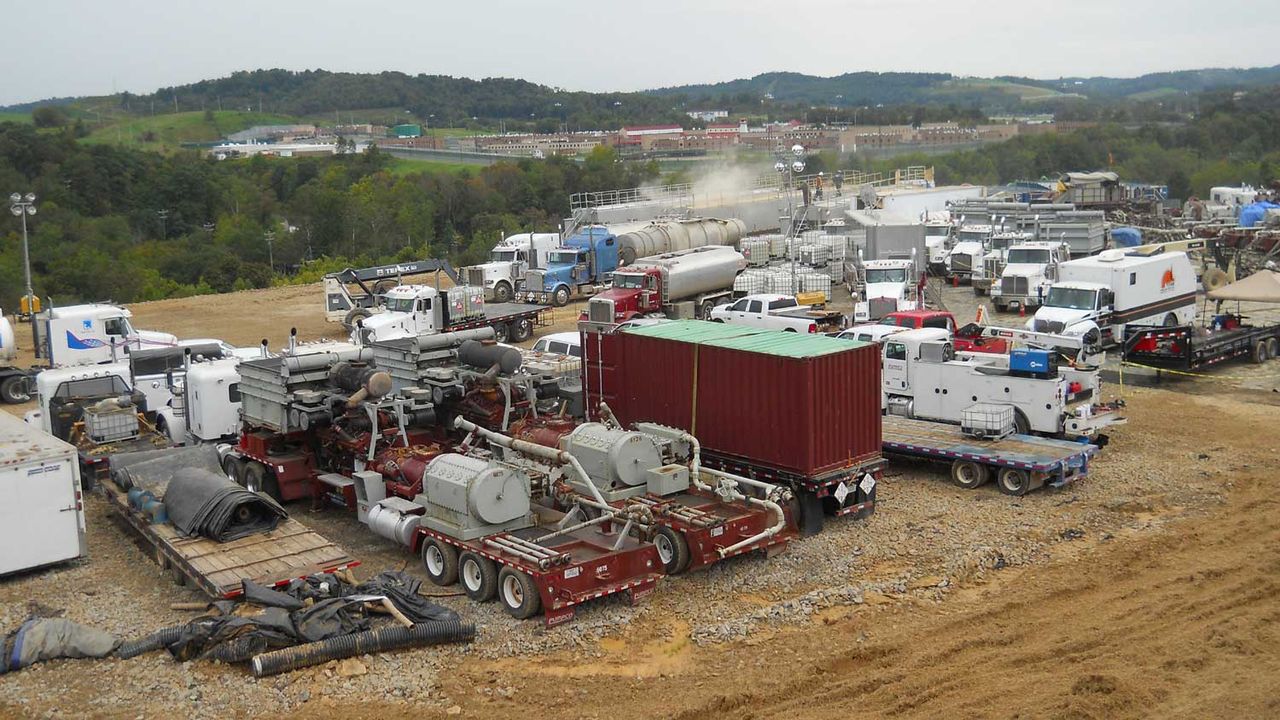Hydraulic fracturing in Maryland could have some negative impacts on public health in the state, recent research suggests.
As a preemptive effort, about 11 University of Maryland professors and researchers were involved in a study in 2013 and 2014 that investigated potential public health impacts of fracking to extract natural gas from the Marcellus Shale Formation in Western Maryland and laid out some recommendations for policymakers, such as buffer zones and air and water quality monitoring.
“What we did was a kind of public health investigation, to see if fracking were to take place in Maryland, what would be the public health impacts,” said Thurka Sangaramoorthy, an anthropology professor.
Their initial research was published online in January in Social Science & Medicine, and a second study outlining the hazard-ranking methodology they used during the investigation was published later that month in PLOS ONE.
The process started with a scoping phase and health impact assessment, Sangaramoorthy said. Beginning in the summer of 2013, researchers held meetings with stakeholders and community members in Western Maryland to get feedback from people who might be affected by fracking and gauge their levels of concern about certain issues.
“There were worries about air quality and water quality, pollutant exposures, earthquakes,” said Sacoby Wilson, a professor at the university’s Maryland Institute for Applied Environmental Health.
Hearing these concerns helped researchers narrow down areas to focus on in the baseline assessment and potential impacts assessment phases, he said.
Potential hazards were organized into eight main categories: air quality, water quality, noise, earthquakes, social determinants of health — which included concerns such as crime levels and mental health — occupational health, health care infrastructure, and cumulative exposures and risk, said Meleah Boyle, a Maryland Institute for Applied Environmental Health project manager.
The hazards were assessed based on specific criteria and then assigned a risk ranking of high, moderately high or low. Researchers then investigated the potential impacts based on their own areas of expertise, Sangaramoorthy said. She, for example, investigated the issues fracking might cause for health care infrastructure in communities.
“Alleghany and Garrett County are relatively low-resource counties. They have a lot of need when it comes to health care infrastructure,” she said. “I tried to look at what the impact might be if migrant workers came in, doing high-risk jobs. … Would it take services or resources away from current residents?”
Fracking is a relatively new environmental issue and area of study, so there is limited prior literature on the subject and a lack of longitudinal data to draw from, Sangaramoorthy said. During her assessment, she looked at data and case studies from other states, including Wyoming and North Dakota, regarding health impacts and risks related to similar industries such as oil production, she said.
Sangaramoorthy also noted in her research that the influx of workers coming with this new fracking industry, especially if they are uninsured or underinsured, could result in an increase in uncompensated ER visits and overall negative impacts on health care infrastructure, such as limited access to quality care.
This aligns with other studies of workers in oil and gas industries, she said, which show they typically have higher death rates and higher risk of health complications due to their high-risk occupations.
When all of the research was completed, team members compiled their findings and created a list of recommendations for how they thought fracking could best be handled in the state.
Some of those recommendations included creating buffer zones or putting some distance between homes and schools and the fracking facilities, as well as continued monitoring of air and water quality at the facilities to try to keep pollution levels low, Wilson said.
“We have sister states like West Virginia and Pennsylvania where steps weren’t taken to really understand the potential impacts of fracking ahead of time,” he said. “We don’t want to make those mistakes.”
This research, which could have many policy implications, brings up important issues for policymakers to consider regarding public health, Boyle said.
“It’s not just about the science, it has real-life relevancy for a lot of people, for people living through these changes in their environment,” Sangaramoorthy said.



